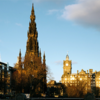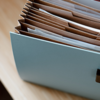We are now moving out of lockdown and into a system whereby the government aims to track down the people who have the virus and trace their contacts. The smartphone app is still in trial stages, and the process relies heavily on a team of contact tracers. A wide range of people have been contracted to do this work. Some contact tracers have backgrounds in medicine, having previously worked as doctors or nurses. Others are administrative or call centre staff who do not have any specific medical backgrounds. However, concerns about the recruitment process have been raised at all levels, along with reports that once recruited, there is little work for the testers to do.
Recruitment Process
By mid-May, when it became clear that the government would rely on a trace and test policy to get out of the epidemic, it was being widely reported that only 10% of vacancies had been filled. Applicants were asked to register their interest in vacancies on the government website, but there was little information about the types of roles available, shift patterns or salary. There was also considerable confusion around what qualifications and experience were needed. Contact tracers, mostly working in call centres, must also pass the basic recruitment checks. This means being able to show your passport as proof of nationality and right to live and work in the UK.
Contact tracers in call centres will not usually need to have an enhanced disclosure check. This is because the type of work which is classed as regulated activity usually involved direct, face to face contact with children or vulnerable adults. Some employers may want to ask their employees to have a basic disclosure check, which is a confirmation of their current, unspent criminal convictions and cautions only. This is not a legal requirement and will depend on policy. As the contact tracers will be working on behalf of the NHS, they qualify for the “fast-tracked” DBS checks recently introduced.
Workload Worries
Once recruited and trained, the job of contact tracers is to speak to people diagnosed with Covid19 and work out who they may have been in contact with. Then it’s simply a matter of contacting all of those people, informing them that they have been in contact with a confirmed case, and asking them to isolate themselves for two weeks. If one of those contacts goes on to develop Covid19 themselves, the process is repeated. In most cases, this will just involve making a phone call to the contacts and explaining what they need to do. Other people may be contacted by email or visited in person if they cannot be contacted in other ways.
The system has been up and running for less than a week, but already concerns are being raised over the workload. Many tracers are reporting only a trickle of calls coming in, and spending long periods doing very little. The government has responded to these claims saying that predicting demand for the service is not an exact science, and that going forward more tracers will be required.





